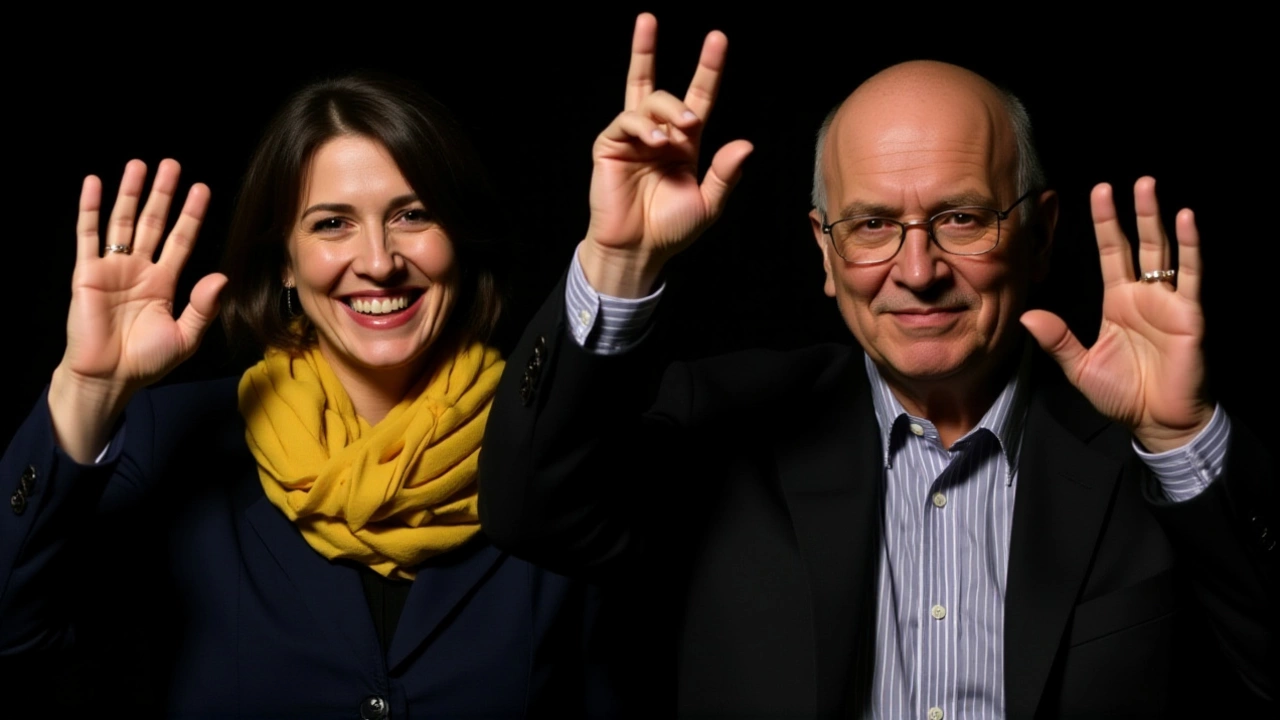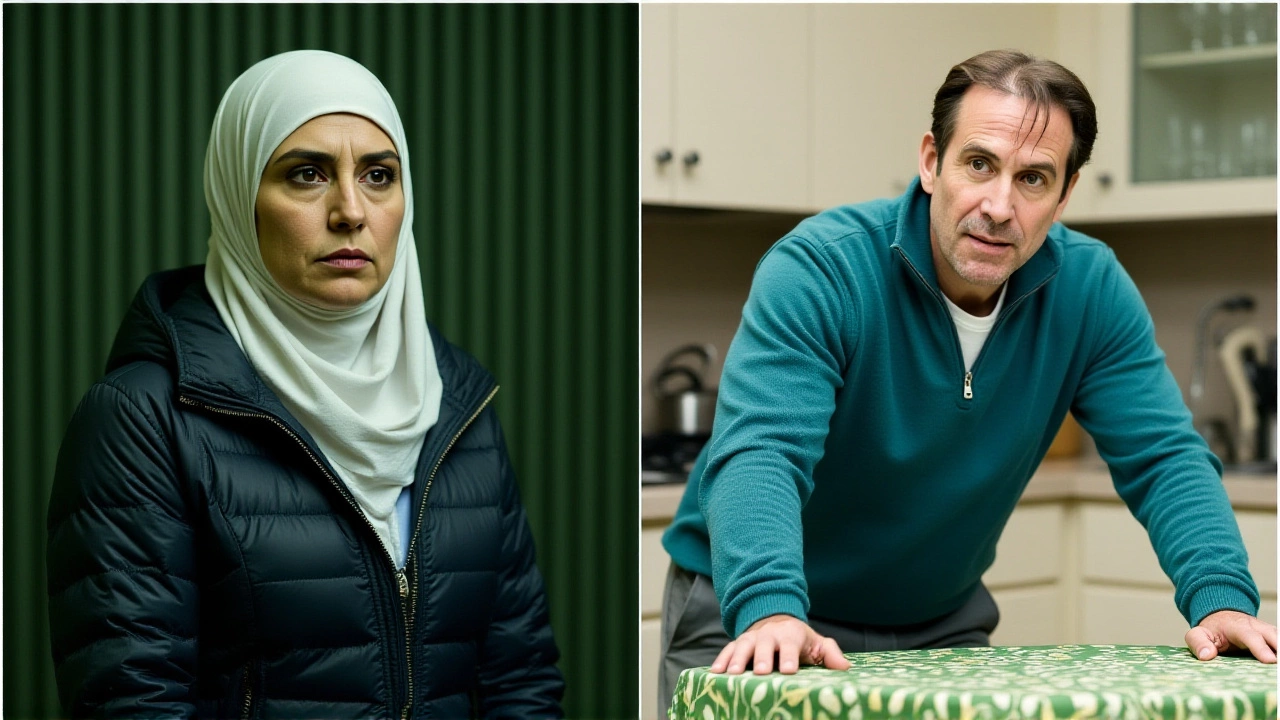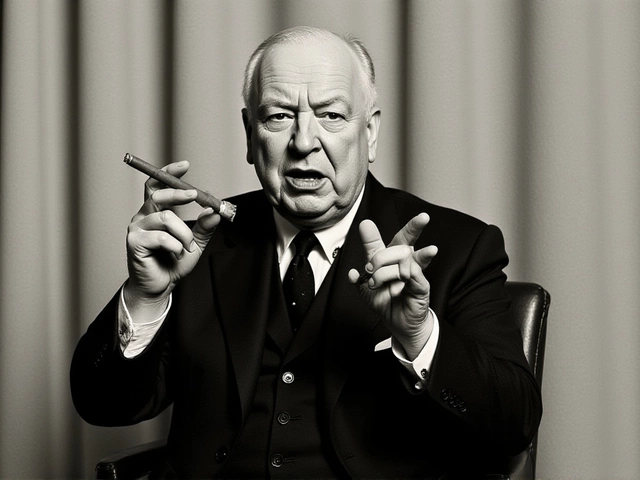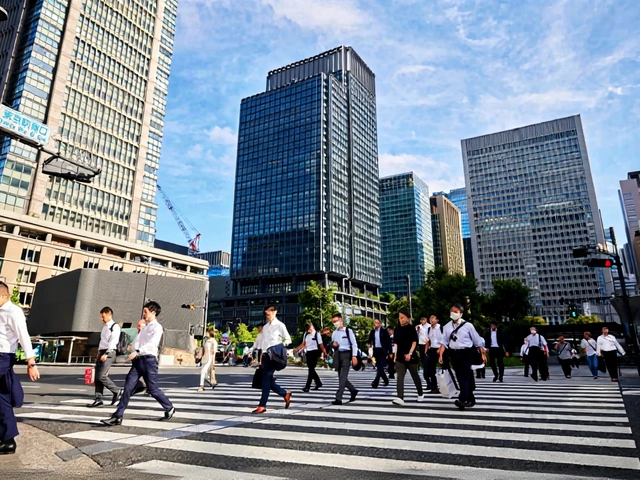
When Nazanin Zaghari-Ratcliffe was arrested at Tehran’s Imam Khomeini International Airport in April 2016, she didn’t know she’d become prisoner number 951 — or that her six-year ordeal would expose a chilling global pattern: authoritarian regimes holding foreign nationals as political leverage. Now, Dancing Ledge Productions, a London-based subsidiary of Fremantle, is releasing a companion documentary — Prisoner 951: The Hostages’ Story — to accompany the BBC’s four-part drama of the same name. Both projects, rooted in the forthcoming memoir A Yard of Sky by Nazanin and her husband Richard Ratcliffe, lay bare not just one family’s suffering, but a systemic failure of diplomacy that lasted years — and the quiet rebellion that finally forced change.
The Weight of a Number
Nazanin, a British-Iranian dual national, was detained under the prisoner number 951 at Tehran’s Evin Prison. That number wasn’t just bureaucratic — it was dehumanizing. In her cell, books became her only escape. She read War and Peace, The Handmaid’s Tale (given by a cellmate), and The Return, each page a lifeline. "Books helped me to take refuge in the world of others," she wrote, "when I was incapable of making one of my own." When she left, she and fellow prisoners left behind their books in a secret ward library — a quiet act of resistance, ensuring the next detainee wouldn’t be alone. The documentary, directed by Erica Gornall and produced by Cassie Cornish-Trestrail, captures this haunting detail not as poetry, but as survival.A Husband’s Stand
While Nazanin was locked away, Richard Ratcliffe waged a relentless public campaign. He didn’t wait for officials to act. In 2021, he staged a 21-day hunger strike outside the UK Foreign Office — a silent, starving plea that drew media attention and public outrage. The footage of his gaunt face, wrapped in a scarf bearing Nazanin’s prisoner number, went viral. "They treated her like a bargaining chip," Richard told reporters during the strike. "But she’s not a debt note. She’s my wife. She’s Gabriella’s mother." That moment, captured in the documentary, became a turning point. Within months, the UK government began re-engaging with Iran — not because of backroom deals, but because the public wouldn’t look away.The £393.8 Million Shadow
Here’s the twist no one wanted to talk about: Nazanin’s detention was tied to a £393.8 million debt from a 1970s arms deal — a contract the UK had never settled, and Iran had never forgotten. For years, British officials insisted her case was separate. The documentary, however, shows internal emails, diplomatic cables, and leaked memos suggesting otherwise. One senior diplomat, speaking off-record to producers, admitted: "We knew. We just didn’t want to admit it." The film doesn’t assign blame — it shows how bureaucratic inertia and political cowardice turned a personal tragedy into a geopolitical stalemate. It’s a story not unique to Iran. From Russia holding American citizens to China detaining Canadian nationals, the playbook is identical: use a civilian as collateral.When the Door Opened
The documentary’s most powerful sequence isn’t the protests or the press conferences — it’s the reunion. In March 2022, after 2,192 days of separation, Nazanin stepped off the plane at London’s Heathrow Airport. Her daughter Gabriella, now seven, ran toward her. The camera doesn’t cut away. You hear the gasp. The sob. The silence between a mother and child who had to learn each other again. "She didn’t know my voice," Nazanin says in the film. "I had to sing her lullabies from memory." That moment — raw, unscripted — is the emotional anchor of the entire project.
The Drama and the Documentary
The BBC drama, Prisoner 951, starring Narges Rashidi as Nazanin and Joseph Fiennes as Richard, premieres November 23, 2025. Filmed in Greece and the UK, it dramatizes the arrest, the interrogations, the family’s fight. But the documentary doesn’t retell the story — it deepens it. It shows the real emails, the real hunger strike, the real faces of other families still waiting. "The drama is the heart," says executive producer Fatima Salaria. "The documentary is the conscience. You can’t have one without the other."Both productions are part of a broader reckoning. In 2024 alone, the UK government acknowledged 15 cases of wrongful detention abroad — up from three in 2018. The documentary’s release, timed with the drama, is no accident. It’s a call to action. Because the next Nazanin could be your neighbor. Or your child.
What Comes Next?
The UK government has since established a dedicated unit to handle wrongful detentions, but families say it’s still too slow. The documentary ends with a chilling statistic: 42 foreign nationals are currently held in Iran on politically motivated charges. None have been charged with a crime. None have had a fair trial. And still, the world watches. The question the film leaves viewers with isn’t whether justice came for Nazanin — it’s whether it came soon enough. And who will be next?Frequently Asked Questions
Why was Nazanin Zaghari-Ratcliffe detained in Iran?
Nazanin was detained in 2016 under the pretext of espionage, but internal documents and the documentary reveal her arrest was linked to a £393.8 million debt from a 1970s UK-Iran arms deal. Iran used her as leverage, despite her being a dual citizen and a charity worker with no military ties. The British government publicly denied any connection — until pressure from Richard Ratcliffe’s campaign forced transparency.
How did Richard Ratcliffe’s hunger strike impact the case?
Richard’s 21-day hunger strike outside the UK Foreign Office in 2021 turned public opinion. Media coverage surged, MPs broke silence, and the Foreign Office was forced to acknowledge the link between her detention and the unresolved arms debt. Within months, negotiations resumed. The strike didn’t free her immediately — but it broke the silence that had protected the status quo.
What’s the difference between the drama and the documentary?
The drama, starring Narges Rashidi and Joseph Fiennes, dramatizes key events with emotional intensity and narrative structure. The documentary, directed by Erica Gornall, presents real footage, interviews, leaked documents, and audio recordings — showing how the British government delayed action for years. One is art; the other is evidence.
Are other families affected by similar cases?
Yes. The documentary features interviews with families from Canada, Australia, and the US whose loved ones are still detained in Iran, China, and Russia. Since 2018, the UK has formally recognized 15 wrongful detentions — a number experts say is likely undercounted. Iran alone holds 42 foreign nationals on unproven charges, according to the UN Working Group on Arbitrary Detention.
Why does this matter to people outside the UK?
Because the tactics used in Nazanin’s case are now global. Authoritarian regimes increasingly target dual nationals, tourists, and aid workers to extract concessions. What happened to her could happen to anyone with a passport and a connection to a country with political tensions. The documentary shows how silence enables abuse — and how public pressure can force accountability, no matter where you live.
When and where can I watch the documentary?
The documentary, Prisoner 951: The Hostages’ Story, will air on BBC Two and BBC iPlayer in late November 2025, alongside the four-part drama. It’s also expected to be available on international platforms like PBS and CBC in early 2026, as part of a global campaign to raise awareness about wrongful detention.




